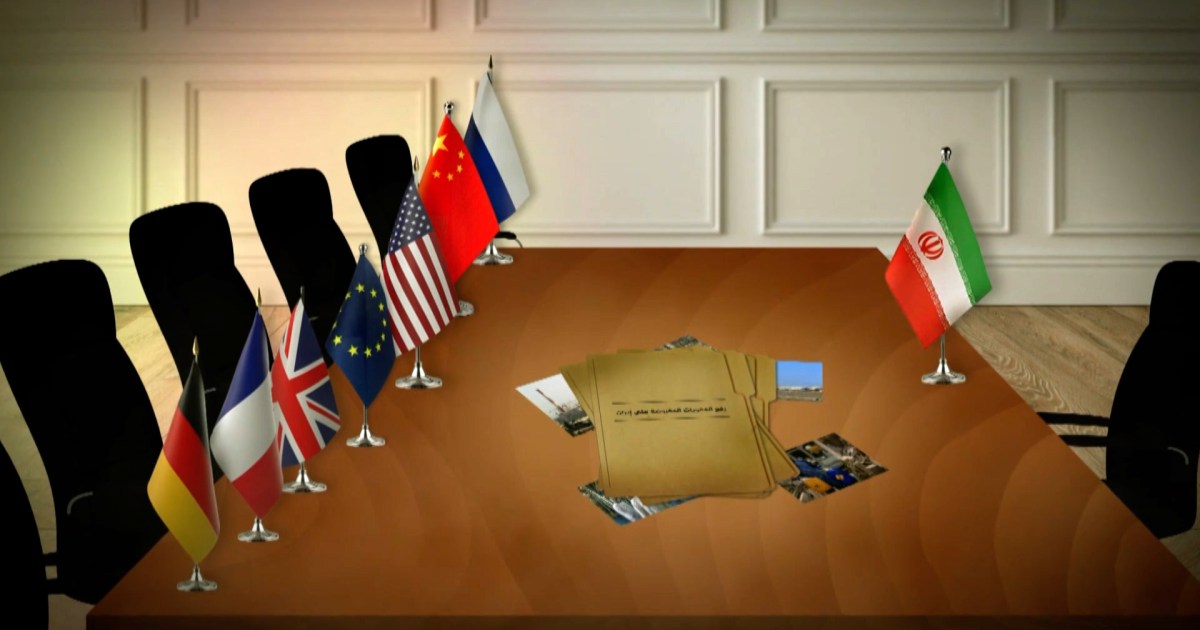Iran said that the possibilities of returning the nuclear agreement are increasing, despite the "biased European statements", while the European parties talked about progress that appears in technical points regarding Tehran's requests.
The Iranian chief negotiator, Ali Bagheri, confirmed to the Vienna talks that the talks in the Austrian capital are "positive and are proceeding well", and said that Iran will return from its nuclear measures after verifying that the sanctions have been lifted in practice.
The chief Iranian negotiator added in press statements that accepting his country's proposal on guarantees and lifting sanctions speeds up reaching an agreement, stressing that an agreement can be reached in a short time provided Washington is serious about lifting sanctions.
Western sources in Vienna had quoted Bagheri as confirming the peaceful nature of his country's nuclear program and its readiness to subject it to monitoring.
It also quoted Bagheri as confirming that Tehran did not intend to exceed 60% uranium enrichment, which would allow it to make a nuclear bomb.
The sources concluded by saying that Bagheri informed the European parties of Tehran's readiness to return to the agreement, and to abide by all its provisions, on the condition that the United States return to it and lift sanctions.
serious intentions
The countries concerned with the nuclear agreement held a meeting in the Austrian capital with representatives of the United States, which was not attended by Iran, which refuses to sit at the same table with Washington.
The Russian delegate to international organizations in Vienna, Mikhail Ulyanov, said that everyone registered their satisfaction with the positive trend during these negotiations.
In turn, the representative of the European Union in the negotiations, Enrique Mora, said that there are serious intentions from the parties to make the talks a success, and that there is progress showing on technical points regarding Iran's requests.
Meanwhile, the German Foreign Ministry said on Twitter Wednesday that the foreign ministers of Germany, France, Britain and the United States discussed the latest round of international talks in Vienna on Iran's nuclear program.
US-Russian talks
Meanwhile, Russian envoy Ulyanov said that senior officials concerned with Iran from the United States and Russia met in Vienna, while delegates from both sides said that Washington and Moscow were coordinating in an effort to save the 2015 Iran nuclear deal.
Ulyanov wrote on Twitter that he met twice on Wednesday with the US special envoy to Iran, Robert Malley, and posted pictures of him sitting with the US diplomat at a large table.
He added that close consultations and coordination between the US and Russian delegations in the context of the Vienna talks are an important precondition for making progress towards resuming the nuclear agreement.
Separately, US Secretary of State Anthony Blinken had a phone call with his counterparts from France, Germany and Britain, and Iranian nuclear talks were among the topics discussed, according to the US State Department.
"The Secretary and his counterparts also discussed their shared concerns about the pace of developments in Iran's nuclear program as the time approaches for Tehran to return to the Joint Comprehensive Plan of Action," State Department spokesman Ned Price said in a statement about the call.
artistic paths
On the technical level, 3 committees representing the parties participating in the current round of negotiations are discussing 3 tracks.
The first track discusses the mechanisms of lifting the sanctions imposed on Iran, and Tehran says that this track is moving forward, and at the same time stresses that Washington must lift these sanctions as an entry point for any agreement.
The second track examines the commitments related to Iran's nuclear program, and there are details required by the International Atomic Energy Agency, such as continuing inspections and monitoring Iran's nuclear facilities.
As for the third track that the technical committees are looking at, it relates to the file of guarantees and mechanisms for verifying implementation. Tehran is looking here for a guarantee that the scene of the US withdrawal from the agreement in 2018 will not be repeated.
The agreement concluded in 2015 lifted sanctions on Iran in return for imposing severe restrictions on its nuclear activities, but former US President Donald Trump withdrew his country from the agreement in 2018, a year after he took office.

